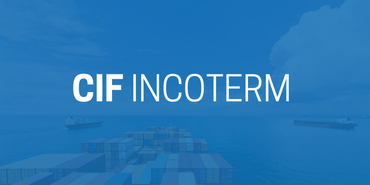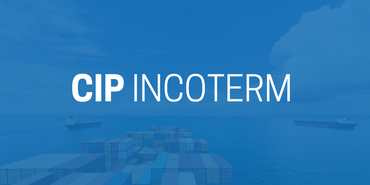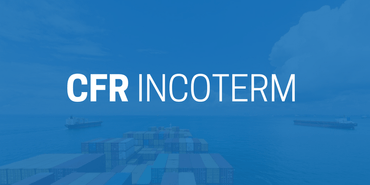
FCA Incoterm (Free Carrier) – Definition



![]()
FCA (Free Carrier) is one of the Incoterms 2020 rules that can be used with any mode of transport, including multimodal shipments. The seller fulfils its obligation when the goods are handed over—loaded if the named place is the seller’s premises, or placed at the carrier’s disposal if elsewhere—to the carrier or another party nominated by the buyer at the named place of delivery. From that moment, risk transfers to the buyer.
2020 update: Article A6/B6 now lets the parties agree that the buyer instructs the carrier to issue an on‑board bill of lading to the seller once the goods are loaded, making FCA more attractive for letter‑of‑credit trades.
Seller’s Main Obligations (FCA)
- Issue the commercial invoice and packing list.
- Clear the goods for export and bear all export duties, taxes, and formalities.
- Load the goods on the buyer‑nominated vehicle if the named place is the seller’s facility; otherwise, place them ready for pickup at the agreed point.
- Provide the buyer with the transport document (B/L, AWB, CMR) showing “FCA, [Named Place], Incoterms 2020.”
- Notify the buyer that delivery has occurred.
- Bear risk and costs up to the hand‑over point.
Buyer’s Main Obligations (FCA)
- Pay for the goods as set out in the sales contract.
- Arrange and pay for the main carriage, choosing and instructing the carrier.
- Handle transit and import customs clearance, duties, VAT, and any local taxes.
- Organise on‑carriage from the named place to the final destination.
- Obtain cargo insurance for the legs under its risk (optional but strongly recommended).
Insurance Under FCA
Incoterms impose no mandatory cargo‑insurance requirement.
| Transport phase | Typical policy holder | Rationale |
|---|---|---|
| Up to the FCA hand‑over point | Seller | Risk remains with the seller until delivery |
| Main carriage + onward moves | Buyer | Risk passes to the buyer at delivery |
A clearly drafted sales contract should spell out who buys which policy to avoid gaps. (Trade Finance Global)
FCA Compared with Related Terms
| Rule | Who Loads?* | Who Pays Main Carriage? | Who Clears Export? | Typical Use‑Case |
|---|---|---|---|---|
| FCA | Seller (if at seller’s site) | Buyer | Seller | Containerized or multimodal shipments where buyer controls the freight |
| EXW | Buyer | Buyer | Buyer | Buyer has strong origin‑side logistics capability |
| FOB (sea only) | Seller (onto vessel) | Buyer | Seller | Traditional bulk or break‑bulk sea freight |
| CPT | Seller | Seller | Seller | Seller prepays freight but risk still passes at origin |
| DAP | Buyer | Seller | Seller | Seller delivers to destination, buyer unloads & clears import |
*If the named FCA place is not the seller’s premises, loading/unloading is for the party that contracts the carrier.
When Does FCA Make Sense?
- Container exports where the buyer wants to leverage its own freight contracts.
- Intermodal projects (rail + sea + truck) needing a clean risk cut‑off at origin.
- Situations where banks require an on‑board B/L but physical loading happens inland.
- Deliveries from large exporters whose sites can safely load trucks or containers.
Common Pitfalls & Mitigation
| Pitfall | Why It Occurs | How to Avoid It |
|---|---|---|
| Wrong or vague delivery point | “Warehouse” not clearly defined | State full address and, if needed, GPS coordinates in the contract |
| Export‑clearance delays | Missing licences or data | Use a pre‑shipment checklist; engage a customs broker early |
| Cargo damage during loading | Inadequate equipment or supervision | Implement SOPs, qualified staff, and confirm carrier arrival windows |
| Freight booking gaps | Buyer books carrier too late | Align shipment date with the buyer’s booking lead times; share forecasts |
| Documentary issues for L/C | Bank needs on‑board B/L | Invoke the FCA 2020 clause for on‑board notation before negotiating the L/C |
Required Documents at a Glance
- Commercial Invoice & Packing List
- Export customs declaration and licences/certificates of origin or conformity
- Bill of Lading / Air Waybill / CMR marked “FCA [Named Place] Incoterms 2020”
- Any agreed insurance certificate or carrier instructions
Key Takeaways
- Risk passes under FCA when the goods are handed over to the buyer’s carrier—loaded if at the seller’s premises.
- The seller handles export clearance and origin loading; the buyer controls freight, transit, and import.
- Clear contract wording on the exact delivery point, documentary requirements, and insurance split prevents costly disputes.
- The new on‑board B/L option makes FCA a practical alternative to FOB for containerised sea shipments financed by L/Cs.
Sources & Further Reading
- ICC – Incoterms® 2020 Rules
- ICC Academy – “Incoterms 2020: FCA or FOB?”
- International Trade Administration – “Know Your Incoterms” & “Free Carrier (FCA)”
- Shipping Solutions – “Incoterms 2020 FCA: Spotlight on Free Carrier”
- xNova International – “Incoterms 2020: EXW, FOB and FCA – Correct Use and Recommendations”
Related Articles


